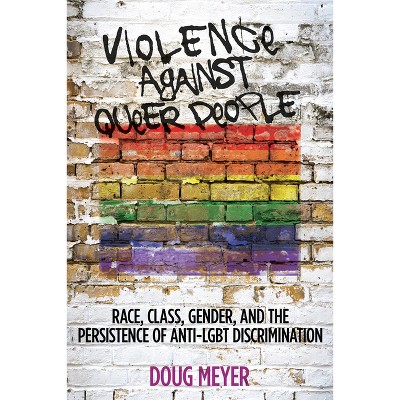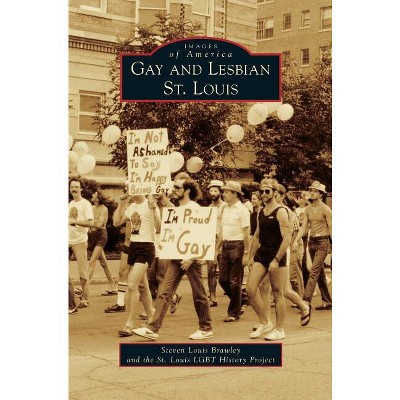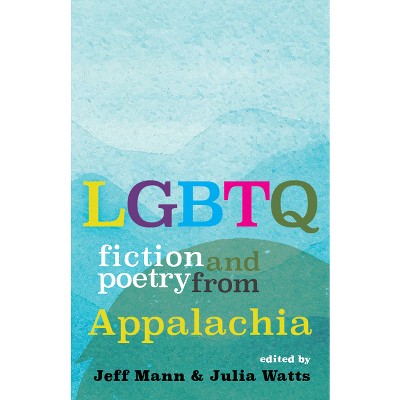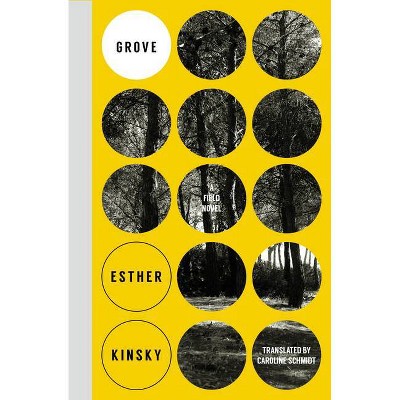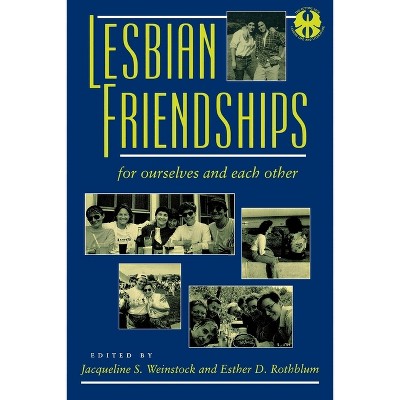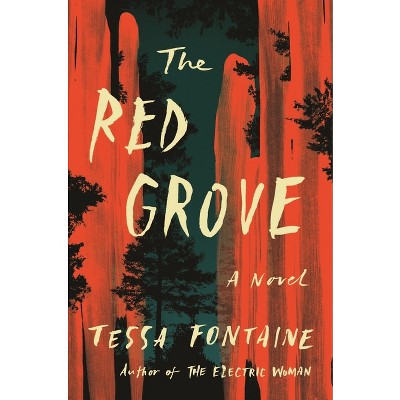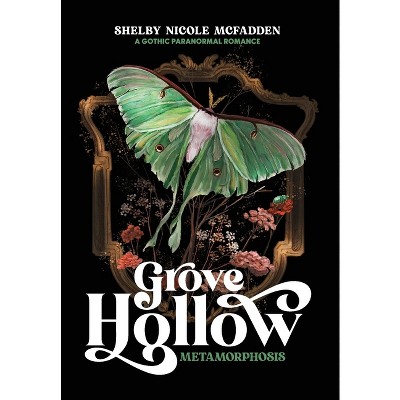Sponsored

Cherry Grove, Fire Island - by Esther Newton (Paperback)
$28.95
In Stock
Eligible for registries and wish lists
Sponsored
About this item
Highlights
- First published in 1993, the award-winning Cherry Grove, Fire Island tells the story of the extraordinary gay and lesbian resort community near New York City.
- About the Author: Esther Newton is currently Term Professor of Women's Studies at the University of Michigan, and Professor Emerita of Anthropology and Kempner Distinguished Professor at Purchase College, SUNY.
- 424 Pages
- Social Science, LGBT Studies
Description
About the Book
Esther Newton tells the story of Cherry Grove, the popular gay and lesbian resort community off of Long Island. Newton discusses the importance of camp, gay theater and the intersections of race, gender, class and sexuality in America's first gay and lesbian town.Book Synopsis
First published in 1993, the award-winning Cherry Grove, Fire Island tells the story of the extraordinary gay and lesbian resort community near New York City. This new paperback edition includes a new preface by the author.From the Back Cover
For thousands of gay men and lesbians in America, Cherry Grove - the oldest continuously inhabited resort on Fire Island - has meant freedom. Not simply the leisure-time freedoms from work and noise and pollution, but the far rarer freedom to socialize in public without risking a beating, to stroll arm in arm without hesitation, to leave the curtains open without fear - in short, to live the American dream that was denied to gay men and lesbians on the U.S. mainland. In her rich and detailed cultural history of Cherry Grove, Esther Newton tells for the first time the full story of this unique community, the oldest gay and lesbian town in America. Covering the years from the 1930s to the present day, Newton has captured the lives of "oldtimers" the people who created Cherry Grove's gay life decades ago, as well as the lives of relative newcomers. Interviewing nearly a hundred people, Newton shares with us the words of the men and women who have built the houses, tended the businesses, preserved the land, and conserved the rich identity of the Grove. The resort's first gay residents were deeply involved in the arts, and the early chapters of the book recall the lasting impact of the many Grovers on the world of New York theater, magazines, and nightclubs. In addition, Newton recounts the Grove's land battles, community disputes, and interpersonal rivalries as well as episodes of violence, police harassment, exploitation by the media, and hatred from straights. Grovers survive, Newton finds, by relying on their own brand of camp culture - a blend of theatricality, partying, and cross-dressing that is at the heart of the community's distinctive and autonomous gay sensibility. Vividrecollections of the Grove's outrageous parties and productions, especially the well-known "Invasion" of the neighboring Pines resort, are woven together with the residents' recognition of the toil that encroaching old age and the onslaught of AIDS is taking on Grove's life. Sustained throughout by the author's personal observations and reflections, Cherry Grove, Fire Island illuminates both the history of America's first gay and lesbian community as well as the significant role of gay men and lesbians in twentieth-century American history.Review Quotes
"Cherry Grove, Fire Island stands as an important document of gay and lesbian life in the twentieth century. Newton makes a convincing case for Cherry Grove as America's first gay town and its influence on gay culture by describing the central place of drag in Cherry Grove history, the impact of the Arts Project as the first theater by gays for gays, and the need for a place such as Cherry Grove where gay men and lesbians could associate in public." --Karen Wilson "Lambda Book Report"
"A monumental achievement and invaluable contribution to gay and lesbian studies."
--Donna Penn "GLQ"
"An ambitious history. . . . Newton should be applauded for writing sympathetically about people who were remarkably resilient in the face of enormous homophobia."
-- "The Nation"
"Esther Newton documents the town's history from its gay beginnings in the 1930s through the first decade following Stonewall, utilizing as her primary resource interviews with . . . Cherry Grove residents. All of these narrators . . . love their town, and repeatedly tell of their joy in first finding themselves there. . . . Although the Grove has had its share of straight-gay and owner-renter clashes, and has never been free of racism, anti-Semitism, or misogyny, it still emerges as a special place; Newton's affection for it is palpable." --Vera Wisman "Women's Review of Books"
"Groundbreaking."--Carl Luss "Gay & Lesbian Review"
"Life at the Grove is always viewed through the prism of history, showing how such events as the Great Depression, World War II, McCarthyism and, of course, the 1969 Stonewall riots, which marked the beginning of the modern gay and lesbian rights movement, affected gay Grovers. That attention, and [Newton's] obvious affection for her subject--and subjects--propels the book effortlessly through the decades."
-- "Boston Globe"
"Newton foregrounds the role of lesbians and analyzes their invisibility and minority status in the community. She is also sensitive to how race and class function in the Grove, considering both the community's heterogeneity and the structures of exclusion that limit its boundaries. . . . The patience and love with which Newton . . . [has] acted . . . to make [her] narrators' histories heard provides a wealth of material for analysis." --Ann Cvetkovich "Signs"
"Newton has written a soundly researched cultural history of this unique homosexual summer retreat. . . . Based on interviews with 46 former and current residents, [Newton] chronicles the colony's development from an isolated few cabins to a thriving, commercial, publicized community with Mafia-run discos and occasional police raids." -- "Publishers Weekly"
"Newton shines, weaving stunning anecdotes of violence and humiliations among her descriptions of fabulous parties and sex. . . . Her empathy conveys the enormous integrity of people whose most radical gesture was to be fabulous in the face of hate."
-- "Village Voice"
About the Author
Esther Newton is currently Term Professor of Women's Studies at the University of Michigan, and Professor Emerita of Anthropology and Kempner Distinguished Professor at Purchase College, SUNY. She is the author of Margaret Mead Made Me Gay: Personal Essays, Public Ideas, published by Duke University Press, Mother Camp: Female Impersonators in America, coauthor of Womenfriends: A Soap Opera, and coeditor of Amazon Expedition: A Lesbian Feminist Anthology.Dimensions (Overall): 9.0 Inches (H) x 6.0 Inches (W) x 1.06 Inches (D)
Weight: 1.28 Pounds
Suggested Age: 22 Years and Up
Number of Pages: 424
Genre: Social Science
Sub-Genre: LGBT Studies
Publisher: Duke University Press
Theme: Gay Studies
Format: Paperback
Author: Esther Newton
Language: English
Street Date: December 3, 2014
TCIN: 92237908
UPC: 9780822355533
Item Number (DPCI): 247-28-2137
Origin: Made in the USA or Imported
If the item details aren’t accurate or complete, we want to know about it.
Shipping details
Estimated ship dimensions: 1.06 inches length x 6 inches width x 9 inches height
Estimated ship weight: 1.28 pounds
We regret that this item cannot be shipped to PO Boxes.
This item cannot be shipped to the following locations: American Samoa (see also separate entry under AS), Guam (see also separate entry under GU), Northern Mariana Islands, Puerto Rico (see also separate entry under PR), United States Minor Outlying Islands, Virgin Islands, U.S., APO/FPO
Return details
This item can be returned to any Target store or Target.com.
This item must be returned within 90 days of the date it was purchased in store, shipped, delivered by a Shipt shopper, or made ready for pickup.
See the return policy for complete information.
Frequently bought together

$9.02 - $19.99
MSRP $17.00 - $19.99
Buy 2, get 1 free select books, music & movies
4.6 out of 5 stars with 566 ratings

$18.88
MSRP $27.00
Buy 2, get 1 free select books, music & movies
4.8 out of 5 stars with 572 ratings
Trending Non-Fiction

$15.68
Buy 2, get 1 free select books, music & movies
4.7 out of 5 stars with 192 ratings

$19.31
was $20.98 New lower price
Buy 2, get 1 free select books, music & movies
4 out of 5 stars with 61 ratings

$19.58
MSRP $29.00
Buy 2, get 1 free select books, music & movies
4.7 out of 5 stars with 14 ratings

$4.59
MSRP $7.99
Buy 2, get 1 free select books, music & movies
4.8 out of 5 stars with 121 ratings

$6.20
MSRP $10.95
Buy 2, get 1 free select books, music & movies
4.8 out of 5 stars with 33 ratings

$7.09
MSRP $9.99
Buy 2, get 1 free select books, music & movies
4.9 out of 5 stars with 46 ratings
